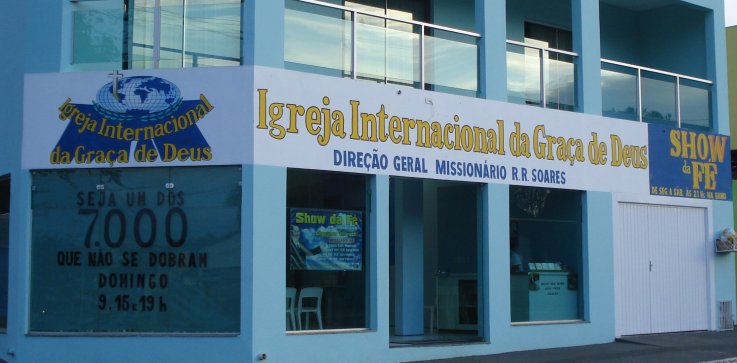My area studies today featured religion in Brazil. These are some notes and impressions.

Max Weber, one of the fathers of sociology, thought that religion would disappear and that Protestants would lead the way, since they embraced rationalism that would come to make religion redundant and expendable. Students of sociology and political science still study his ideas those they spawned & there are lots of good ideas. But embedded in the classic sociological system is the assumption, common in intellectual circles in at the turn of the last century, that religion was old-fashioned and in the future would atrophy. Max Weber died in 1920 from complications from the Spanish flu. Religion has shown no signs of dying out and among most dynamic and expanding types of religion are the charismatic protestant denominations. Maybe the reports of the death of religion have been exaggerated.
One of the most interesting places to watch the religious dynamic is Brazil. Brazil remains the world’s most populous Catholic country. This doesn’t surprise most people for a mostly Catholic country with a population of 190+ million. More surprising, perhaps, is that Brazil is also home to the world’s largest community of Pentecostal Christians. The numbers of protestants in Brazil is has been growing rapidly. A couple generations ago, there were almost no Protestants outside immigrant communities in the south. Today some surveys indicate that Protestants make up as much as 30% of the population and their numbers are growing rapidly.
The Protestants are also among the most active. As I mentioned above, Brazil has the world’s largest population of Pentecostals. They currently make up between 15-21% of the population, but they are very much involved in their religion. They attend church services in very large numbers and account for around 40% of all contributions to churches in Brazil.
Many of the new Protestants come from the poorer parts of society. The church gives them not only spiritual guidance, but also social benefits. The church provides social networks and encourages members to stop drinking, gambling and cheating on their spouses. All these things translate into generally better life outcomes on earth as, presumably, in heaven. Compared with others in similar social-economic circumstances, Brazilian evangelicals have higher incomes. Americans would recognize some of the methods Brazilian evangelicals use to reach potential converts and keep in touch with the flock. There are what we would recognize as mega-churches, but more often the secret of success is to be local and close to the customers, as illustrated above. The new churches know their communities and satisfy both their spiritual and social needs. Brazilian evangelicals were among the first to take advantage of television. One of the biggest denominations, the Universal Church of the Kingdom of God (Igreja Universal do Reino de Deus) owns a television network, Rede Record. Brazilian evangelicals are having significant effects overseas, especially in Africa.
What marketers might call closeness to the customers is a big advantage that evangelicals have over the Catholic Church, which tends to be a little more distant. Catholic priests are also thin on the ground. There is only one priest for every 8600 Brazilians. With that kind of ratio, it is hard to get close and personal. This is exacerbated by the fact that many priests in Brazil are foreign born. Brazil doesn’t produce enough of its own. The Catholic Church is trying to counter the loss to the charismatic Protestant churches with its own version. The leader of this movement is a priest called Marcelo Rossi. Despite these efforts, the Protestant numbers continue to grow.
For now, it is the Protestant charismatics who are reaching the poor. They preach a personalized salvation, as opposed to the “liberation theology,” which was the largely unsuccessful attempt to reach the poor a generation ago. That does not mean that the Protestants stay out of politics, however. Leaders have learned to deploy their numbers as swing voters. In recent elections, they have supported the left leaning PT (Lula’s party) but not reliably (hence the swing vote status).
Those of us who graduated from secular-based programs in secular universities have a little trouble understanding the power of religion in motivating people. Our world view just doesn’t include the power of faith. We tend to look beyond the religion and seek secular explanation based in sociology or psychology. These factors probably have some validity, but maybe religion is a big part of some people’s lives because they really believe it is true. IMO, we need to respect that a little more than we do and treat beliefs as a goal in themselves, not merely a means to achieve some material goal.
BTW – I have sometimes used the term evangelicals. This does not mean exactly the same thing to Brazilians as it does to us. In its Portuguese version, it is more inclusive of all Protestants, but it is true that the fastest growing portions are those that might fit in well with our connotations.
You can find more about Brazilian statistics at www.datafolha.com.br.
